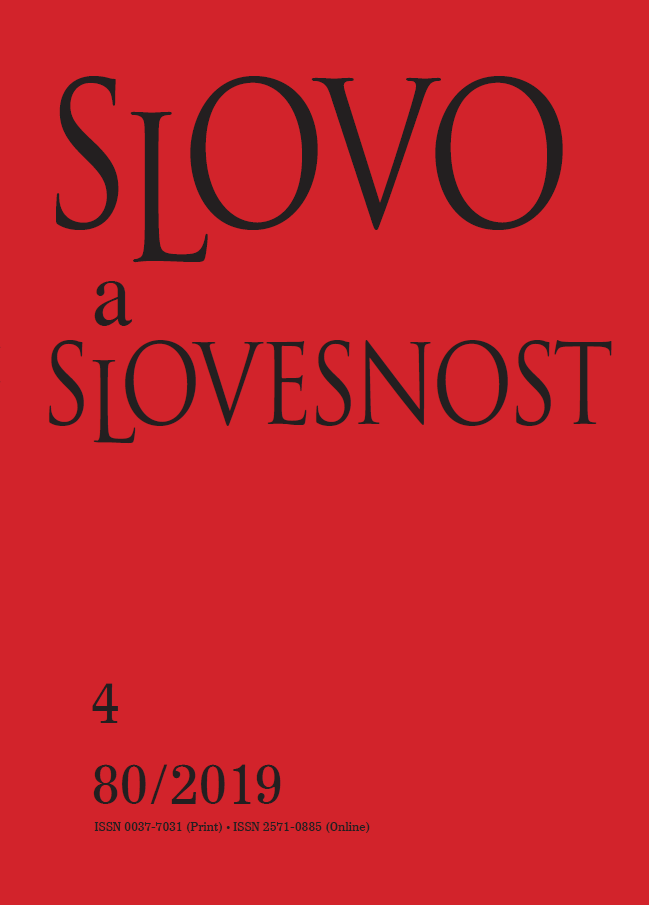Negative-mutational verbs and presupposition in Czech
Negative-mutational verbs and presupposition in Czech
Author(s): Luboš Veselý, Vojtěch VeselýSubject(s): Theoretical Linguistics
Published by: AV ČR - Akademie věd České republiky - Ústav pro jazyk český
Keywords: mutational verb; presupposition; negation; implicative verb
Summary/Abstract: The aim of this contribution is to analyze the meaning of the Czech verbs zůstat ‘stay, remain’, nechat ‘keep, leave, let’ and zapomenout ‘forget’. We will argue they are mutational verbs sui generis: their positive forms express a denial that a mutational action has been carried out, whereas the negative forms express the carrying out of a mutation. Since such behaviour is contrary to prototypically mutational verbs, we call zůstat, nechat and zapomenout negative-mutational verbs. This construal makes it possible to maintain the assumption that a presupposition of an initial situation is a sufficient condition for the mutational meaning. If combined with an infinitive complement, the verbs zůstat, nechat, zapomenout belong to the class of implicative verbs (zapomenout is negative-implicative). In this use, the given verbs retain the status of negative-mutational verbs provided certain conditions imposed on the infinitive are fulfilled.
Journal: Slovo a slovesnost
- Issue Year: 80/2019
- Issue No: 4
- Page Range: 265-284
- Page Count: 20
- Language: English

